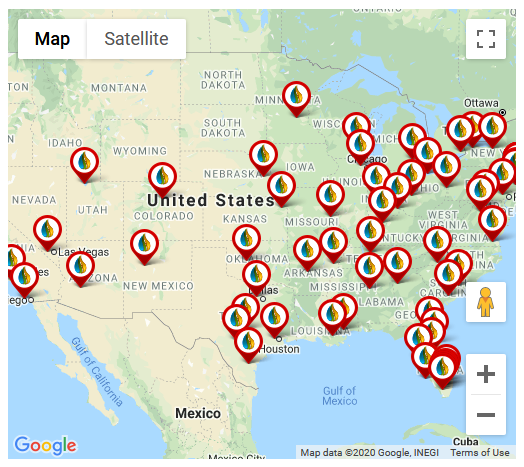What Happens If I Do Not Fix A Leak In My Home?
There’s nothing good about a leak in your home or business. But not acting on a leak right away could make the situation much, much worse over time. When you don’t repair a leak, you could be causing additional water damage to your property, which means you’ll need the help of a professional water damage restoration service as well as a plumber in order to get your home back in order.
Early leak detection is not always something that homeowners think about, but it could save your time and money down the road, particularly when it comes to unseen leaks within the walls of your property. Leaving the water leak in place will result in an expensive water bill, the first major casualty for many households.
Over time, an untended leak can become a larger problem that impacts further areas of the home. The moisture may seep into walls, appliances, and other surfaces, causing extensive damages that can be costly to repair. In most cases, it is cheaper to hire a plumber to fix an initial leak than to hire a restoration company to clean up the damages.
What Could Happen If I Ignore A Leak?
Sometimes, we may think that a leak is simply annoying; a dripping noise that is only really noticeable in certain rooms or late at night. In some cases, undetected leaks can cause flooding damage. Flooding can spell extensive and expensive damage to the property. When a leak results in flooding you’ll need to call in a professional mitigation service to help you deal with the mess. Not to mention, an ongoing leak could be causing structural damage that you aren’t even aware of because it is not highly visible. Mold growth is a common issue related to undetected leaks, resulting in the need to use equipment like mold bomb foggers in order to eliminate the possibility of mold growth and further structural damages.
Added to this, undetected or unattended water leaks also cause water wastage. A dripping toilet is estimated to waste as much as seven to ten gallons of water daily. With this waste, the property owner is most likely to see a surge in their water bill.
The Impact of Unchecked Leaks
A leak can present itself mildly enough in the beginning. Maybe you hear your bathroom faucet dripping at night. Maybe you hear water moving through the pipes even when no faucets are turned on. You could experience wetness on certain surfaces; for instance, laminate is subject to water damage and sweating. These are small signs that there could be a leak causing damage to your property, but they aren’t signs that you should ignore. It could be tempting to let a leak go. We’re all busy, and a dripping faucet may not seem like the most important thing on your list. Unfortunately, the longer you go without investigating a leak, the more you could be costing yourself.
Water leakage has a way of getting into every aspect of the home. However, the major problems to brace up for include:
Mold & Mildew Problems
When you have a water leak in your home or business, one of the major problems that you need to be aware of is the worry that mold and mildew growth could occur. Mold and mildew are dangerous since they pose health risks, especially to those with a weakened respiratory system. Mold can lead to issues with breathing, chronic diseases, asthma, coughing, emphysema, caustic rashes, and other symptoms similar to allergy or cold symptoms.
In addition to health concerns, mold and mildew can spread fast and may soon take over all areas of the home, including furniture, walls, clothes, attic spaces, carpeting, and more.
Fire Hazards
Believe it or not, water leaks are one of the leading causes of fire hazards. Consider the amount of electrical wiring that runs through your home. If wiring is exposed in the home, it takes very little water to create a spark and start a fire.
Water Wastage
Water wastage and low water pressure are two of the biggest indicators that you could have a leak. Maybe the water pressure on your sink seems too low or your toilet is having trouble filling up after a flush. And when a leak is present, that water movement still counts towards your regular water bill. You might end up redoing a load of dishes or laundry several times due to poor water pressure, and all of that simply adds to your bill.
Water Damage
No matter how big or how small a leak is, it can lead to water damage in your home. The more hidden a leak is, the more likely it will go unnoticed until the damage is extensive. When your home suffers from water damage, it can lead to a breakdown in the core structures of your building.
How Much Does A Leak Really Cost You?
Household leaks can average about 10,000 gallons of water annually. This same amount of water is enough to do 270 loads of laundry. Common household water leaks include 3,000 gallons of water wasted annually from faucets, 500 gallons of water wasted annually from showers, 13,000 gallons of water wasted annually from old inefficient toilets, as well as 6,300 gallons wasted annually due to irrigation leaks.
Leaks Have No Boundary - Early Detection is Key
The sooner you are able to detect a leak, the sooner you’re able to prevent additional consequences from occurring. But if you’re not aware that a leak is happening, how can you expect to prevent it from getting worse? The easiest way to detect leaks earlier in your home is to call an experienced plumber or restoration company with the tools to test your plumbing and know how to spot signs of an early leak.








